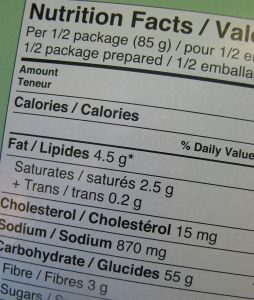Understanding Orthorexia Nervosa, An Obsession With Healthy Eating
 Although it may appear that a person eats well, they may be suffering from orthorexia nervosa, a commonly overlooked eating disorder in which someone fixates on “righteous eating” or eating pure foods.
Although it may appear that a person eats well, they may be suffering from orthorexia nervosa, a commonly overlooked eating disorder in which someone fixates on “righteous eating” or eating pure foods.
Defining Orthorexia
A person who suffers from orthorexia often begins to eat well with good intentions, but then becomes obsessed with food quality and purity. They become obsessed with what and how much to eat, as well as how to deal with eating “unpure” food during slip-ups or binges. The superiority associated with eating so-called “pure” food can sometimes be the motivation behind an orthorexia’s eating disorder. The disorder becomes especially dangerous when its restrictions impair a person’s activities, interests, relationships and physical health.
You might have orthorexia if…
* You wish you didn’t have to worry about food quality
* You wish you could spend less time concentrating on food
* It seems impossible to eat a meal by someone else, especially a loved one
* You always look for ways that food is unhealthy for you
* You feel guilty when you stray from your diet
* You feel in control when you stick to your diet
* You put yourself on a nutritional pedestal, so to speak
Though these points are not necessarily indicative of an eating disorder, they are commonly associated with orthorexia.
Treatment and Recovery
Treatment for orthorexia might include the patient admitting that he or she has a problem. The patient might also become more flexible about the types of food they eat and the way they perceive status with food. Additionally, a patient might work through underlying emotional issues that make the transition from abnormal to normal eating easier.
Recovering orthorexia patients will understand that they can eat healthfully while learning a new, more accurate definition of health. They will realize that certain types of eating do not make them a superior person and will extend their identity beyond that of a person who eats health food. Finally, a recovering orthorexic will understand that while food is important, so is a healthy and happy life.
Source: National Eating Disorders Association
 Eating Disorder Self Test. Take the EAT-26 self test to see if you might have eating disorder symptoms that might require professional evaluation. All answers are confidential.
Eating Disorder Self Test. Take the EAT-26 self test to see if you might have eating disorder symptoms that might require professional evaluation. All answers are confidential.